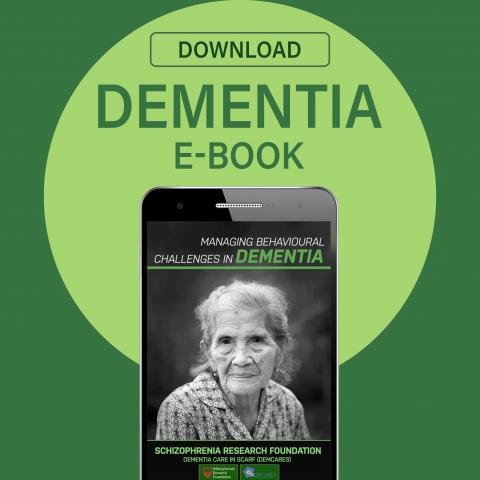
Nishi Pulugurtha writes about the challenges of being a caregiver to an Alzheimer’s patient, her mother, and the travails that came with it.
“Let us go home,” Amma said this often. There was nothing strange about this sentence, all of us would love to be back home at some point of time or other. What makes Amma’s statement important is that when she said this, she was actually at home. I used to tell her that. It made her keep quiet for a while. She would go back to doing something. It was obvious she was not happy with what I told her. After sometime she would be back again, saying the same thing again. When I asked her where her home was, she had no answer. At times my question angered her, at times she was displeased with it. Amma was very easy going and never made a hue and cry about it.
We had no clue that Amma had Alzheimer’s till one day she went out of home, taking care to lock everything up. There was nothing strange in it, only that she did not return home. We found her after 48 hours, somewhere very far from home. She had no recollection of how and why she went out. We did not ask her about it too, we were just happy to find her and bring her home. Even the day before she left home in this way, Amma had done things she usually did at home – cooked, did grocery shopping, among other things. That desire of wanting to home while actually being at home began after it all.
A series of doctor visits and tests were done and the diagnosis came in. One of the most important changes that we noticed in Amma was behavioural. It was no longer possible to let her be by herself at home. She always had to have someone by her side. She did not approve of the carer, she told me that a number of times. I tried explaining to her that help at home would be good for her, she would have someone to talk to. She kept quiet and it was obvious that she was not happy with it. More so because the house had to be locked up and the keys were with the carer. She did tell me a number of times that she did not understand why someone else should have the keys to her home.
Most people have heard of Alzheimer’s Disease and dementia and they associate it with a loss of memory. When my mother was diagnosed with the disease over eight years now, I knew of it too. However, I did not know of what it would entail. Memory loss is just one part of Alzheimer’s Disease and dementia. One of the biggest changes that I noticed were behavioural. Amma would spend time looking for the keys to the house all the time. She looked up the usual places, and looked everywhere else. Amma was used to walking in our compound. I made sure that she still did that, walking and tending to her plants. Only now, the carer had strict instructions to be with her always. Amma could not be left alone. I noticed that she always tried to walk away, to wander off. One day she told the carer that she wanted to go out, the lady agreed, as they started moving out of the house, Amma closed the door of the flat leaving the carer outside and refused to let her in. An intervention from our neighbour sorted out the issue. This incident perturbed me a lot as Amma was a very outgoing, people person. It was difficult to understand why she behaved the way she did.
A few minutes after, Amma would interact with the help very nicely as if nothing had happened. She would show her photographs of her grandson, help her in reading her messages, speak to her about her family. An outsider, someone unacquainted with Amma’s condition, could not understand that Amma had a problem. I had great difficult in telling the carer about Amma’s condition. Most of them failed to understand her situation, a few did. Training a carer who had absolutely no clue about Amma’s condition was always a big challenge.
This and many more behavioural changes became obvious in Amma. I learnt there was no way one is prepared to deal with such and other issues that come up when caring for a dear one. One learns to deal with them and what I learnt was to take each day as it comes. Amma had a lot of hallucinations, initially I used to brush them away, reason with her about them, but slowly I realized that there was no point doing it. I soon started to listen to all what she had to say patiently. It troubled me immensely, but I learnt that arguing, disagreeing and reasoning only increased her restlessness. She needed assurances and reassurances, she needed to be comfortable.
Amma would be looking for a door to go out. This wandering off was a concern for us. I travelled with Amma even after all this began. I had to be overly cautious. I kept my hand on her shoulder always, she did not like it if I held her hands and would brush it off. We went out to shop, to eat, to buy groceries, did everything she liked to do and did. It was not an easy thing to do, but then I needed to make sure that in spite of all her life would or should more or less the way it was. I slept with the keys of the house tucked inside my pillow cover, so that she could never lay her hands on them.
Dealing with such behavioural problems is of major concern to the caregiver who has to deal with the changes in a loved one. It is an extremely difficult task for the caregiver and other family members. One never is able to come to terms with these and many other such changes in a loved one. The primary caregiver is usually greatly stressed and is mostly at a loss as to how to deal with the scenario that she/he finds herself/himself in as the loved one behaves so very differently from the way she/he used to. Each day brings with it a new situation, new problems, one just learns to deal with them in the best way possible, struggles to deal with them mostly. It is part of the journey that one undertakes with a loved one who has Alzheimer’s.
Nishi Pulugurtha is also a speaker at the One Day Seminar being organised by the Calcutta ARDSI (Alzheimer's and Related Disorder Society of India) Chapter on 22nd September, 2019.






